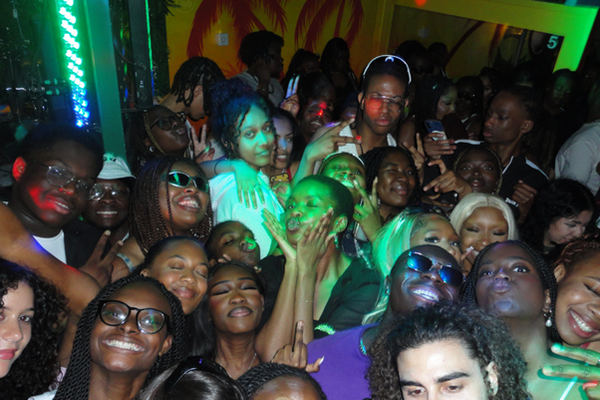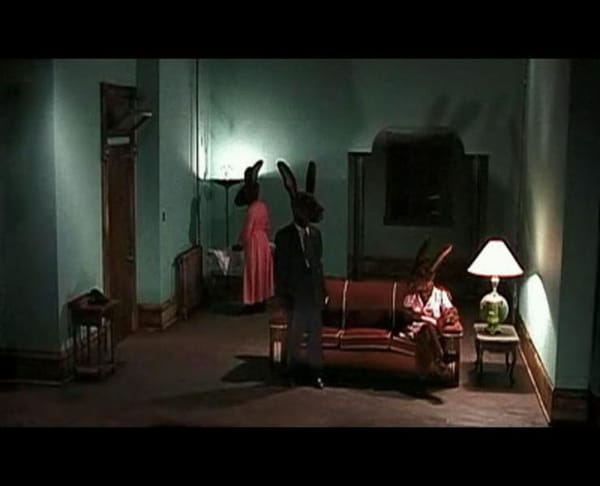In defence of Barbie
Greta Gerwig did what she does best – making women mourn for their girlhood and making men uncomfortable.

Would you rather watch Jaws with its iconic anxiety-inducing soundtrack, or Grease with its songs, dances, and comedy? Flash forward 15 years, and you must choose between the bizarre Hocus Pocus, with a plot that made me yearn to have been in the writers’ room, and Free Willy, which could have put you off enjoying an aquarium ever again. Another 15 years later, and the choice is between Mamma Mia, which made every viewer dream of moving to a Greek island, and The Dark Knight, featuring one of the most iconic Jokers to date.
Adding to this saga of polar-opposite blockbusters with the same summertime premiere date, 2023 saw the release of Barbie and Oppenheimer. While some claim this was an intentional move by Warner Bros, the company behind Barbie, due to their vendetta against Christopher Nolan, director of Oppenheimer, it cannot be denied that both films benefitted from the rivalry. Many people who would have otherwise only watched one of the films saw both on the same day just to ‘do Barbenheimer right’, the notion of simply watching both films within the week of release deemed as being not enough. Planned outfits, primarily for Barbie watchers, became a must, and group plans for coffee before Oppenheimer and cocktails before Barbie were commonplace.
In my opinion, as someone who admittedly lacks the inclination to go to cinemas nearly as often as a cinephile, competition like this is one of the best things that can happen for both the creators of films and the theatres in which they’re played. For the first time since at least the pandemic, I had genuine difficulty finding a seat both on and after the release date. The films’ combined box office grossing was over $2 billion USD, and the seats for both films being sold out worldwide for weeks speaks to the sheer success both have achieved.
Something that Barbie has also achieved in spades over a short period is causing breakups, particularly affecting heterosexual couples. The film is Greta Gerwig’s biggest project to date, with a greater budget, marketing, and controversy than any of her previous films. Gerwig, who also directed Little Women and Ladybird, is known for the feminist subject matter of her films, which are celebrated for their exploration of girlhood and the loss of innocence associated with maturing. Barbie is no outlier, exploring the effects of the patriarchy on both men and women after the residents of the feminist utopia Barbieland encounters the ideals of the real world. The film also features the employees of Mattel themselves, as well as a mother-daughter duo whose actions lead Barbie to begin experiencing human emotions such as sadness and anxiety.
Now, what about this could lead to breakups? They appear to be caused by men’s reactions upon seeing the movie, and the ensuing conversation once the unhappy couple leaves the theatre. A common complaint against Barbie is that it has exaggerated the problems faced by women, and presents men as incompetent villains. Upon realizing how much the other gender stressed that ‘not all men’ are aggressors, and that men have issues too, women often found themselves embroiled in the fruitless argument regarding which gender has it worse. A lack of consensus can eventually lead to more problems or the realization that maybe the partners don’t have the same viewpoints in life. For some, it’s not even an argument that ends the relationship – some women who have been long unsatisfied with their relationships have reported that the movie made them come to terms with their previously repressed emotions, leading to them ending the relationship for their own sake.
Of course, one could argue that Barbie isn’t the cause of the relationships ending. They would be right – Barbie is a common denominator, but not the cause. So what has it done to deserve this backlash? Firstly, Barbie is a comedy movie, making it easier to dismiss – the movie leans towards satire and humour to communicate with its audience, barring some select scenes, hence some of its messages can be missed by viewers, especially if they don’t have previous experience with the topics discussed at hand. Secondly, the movie starts with an introduction to Barbieland – a feminist utopia where the Kens are considered second-class citizens, with no purpose in life other than making the Barbies happy. This predictably leads to outrage among certain viewers, when they have not yet made it to the end of the movie, which concludes that both the Kens and the Barbies were wrong. The film ends with both Barbie and Ken setting off to find their calling, no longer conforming to the toxic gender norms that had previously made them miserable. Frankly, it’s as good a message regarding gender equality as it gets, and, like any good piece of art, it provokes emotions in its audience.









